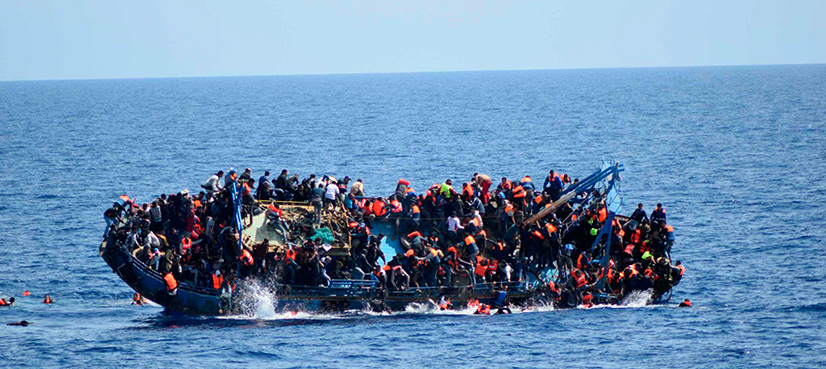
KALAMATA, Greece: The trial of nine accused smugglers opens on Tuesday, nearly a year after a derelict migrant trawler with hundreds on board including nearly 350 Pakistanis sank off the coast of Greece in one of Europe’s deadliest shipwrecks.
Nine Egyptian men — who were among the 104 survivors — will appear before a court in Kalamata, southwestern Greece, to answer charges including negligent homicide, participation in a criminal organisation and facilitating illegal entry into the country.
The men, aged 21 to 37 years old, have denied responsibility.
Their lawyers say they are being scapegoated to obscure the responsibilities of the Greek coastguard, which failed to mount an effective rescue.
The suspects, who have spent the past 11 months in pre-trial detention, face life imprisonment if convicted.
As the sinking occurred in international waters, 47 nautical miles (87 kilometres) off the coast of Pylos, lawyers for the defendants say a Greek court is not competent to hear the case.
The defence team also claims major procedural violations were committed in the investigation that led to the trial.
They say their clients were arrested barely 24 hours after surviving the sinking, and on the basis of just nine testimonies, some of it collected without adequate translation.
Some survivors subsequently claimed to have come under pressure from Greek police to “designate” suspects, based on blurry photographs, she added.
The sinking of the rusty and overloaded trawler Adriana on the night of June 13 to 14, 2023 off the coast of Greece, has left many unanswered questions as to whether the tragedy could have been averted.
The boat had set sail from Libya and was heading for Italy. Only 82 bodies were found while according to the UN, more than 750 people were on board, including Syrians, Palestinians and nearly 350 Pakistanis, according to the Pakistani government.
Ahead of the trial, Human Rights Watch (HRW) has noted that a parallel investigation into the Greek authorities’ actions is still at a preliminary stage — meaning the court will have incomplete information in assessing the culpability of the defendants.
“There’s a real risk that these nine survivors could be found ‘guilty’ on the basis of incomplete and questionable evidence,” Judith Sunderland, HRW associate Europe and Central Asia director said in a statement.
“Credible and meaningful accountability for one of the worst shipwrecks in the Mediterranean needs to include a determination of any liabilities of Greek authorities,” she added.
Several migrant support groups and media outlets have said that the Greek coastguard was slow to intervene and then gave only a trickle of information on the circumstances of the tragedy.
The NGO Alarm Phone and the EU’s border agency Frontex had both reported the trawler’s presence to Greek authorities while it was in the Greek search and rescue zone.
‘Refused help’
The coastguard had insisted that it communicated with persons on board who “refused any help”.
“You cannot divert a boat with so many people on board by force unless there is cooperation,” coastguard spokesman Nikolaos Alexiou had said at the time.
In contrast, survivors said the coastguard had wanted to tow the overloaded trawler.
Prime Minister Kyriakos Mitsotakis, whose country is accused by rights groups of practising illegal pushbacks at its border with Turkey, later dismissed claims against the port authorities as “very unfair”.
An investigation by a naval court into the possible responsibilities of the coastguards is underway. But requests for access to the file have all been refused, the defence lawyers said.
In September, around fifty survivors filed a group lawsuit against the coastguard.
For migrant rights proponents, the trial is part of a longstanding practice of criminalising asylum seekers.
According to the NGO Borderline Europe, Greek prisons hold around 2,000 migrants accused of being smugglers, constituting the second largest group in Greece’s prison population.
from ARY NEWS https://ift.tt/WitPHYX
No comments:
Post a Comment